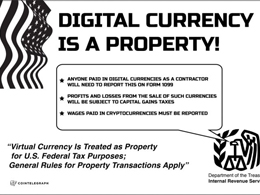
Man Changing His Legal Name to Promote Bitcoin Alternative “CLAMS” Virtual Currency and getCLAMS.com for $50,000.00
CLAMS Virtual Currency and getCLAMS.com are excited to announce that Justin Boscolo has agreed to change his legal first name to “Iheart” and his legal last name to “getCLAMS.com” for the next 3 years in exchange for $50,000.00, as part of an ongoing CLAMS promotion.
At 6’ 3” tall and 260 lbs., Justin describes himself as a normal 22 year old and said he is excited to be a part of something as cutting edge and relevant as CLAMS Virtual Currency.
A resident of Kent Washington, Justin first learned about Virtually Currencies about 6 months ago and became fascinated with them.
“Every time I ask someone I know if they have heard of Bitcoin or Virtual Currencies, they typically tell me that they have heard of them but they don’t know what they are all about. That tells me that a huge opportunity exists right now. Now I get to make a fist full of cash and have fun promoting something I believe in,” Justin stated.
Leah Vickers, a Marketing Consultant for CLAMS has been recruiting people for various CLAMS promotions for the past several weeks. Mr. Boscolo and Ms. Vickers have a long history together and she felt he would be a good fit for CLAMS because of his personality, size and passion for CLAMS.
“When Justin walks into a room, people definitely take notice and when he speaks people listen” according to Leah.
When Leah introduced Justin to the people at CLAMS, they agreed and a deal was made.
CLAMS
CLAMS are a Virtual Currency and an alternative to Bitcoin. CLAMS use newer technology making them faster and more convenient to use. CLAMS believes that their improved technology and aggressive marketing will make CLAMS a mainstream currency.
Find out more about CLAMS at http://www.getCLAMs.com/
Related News





